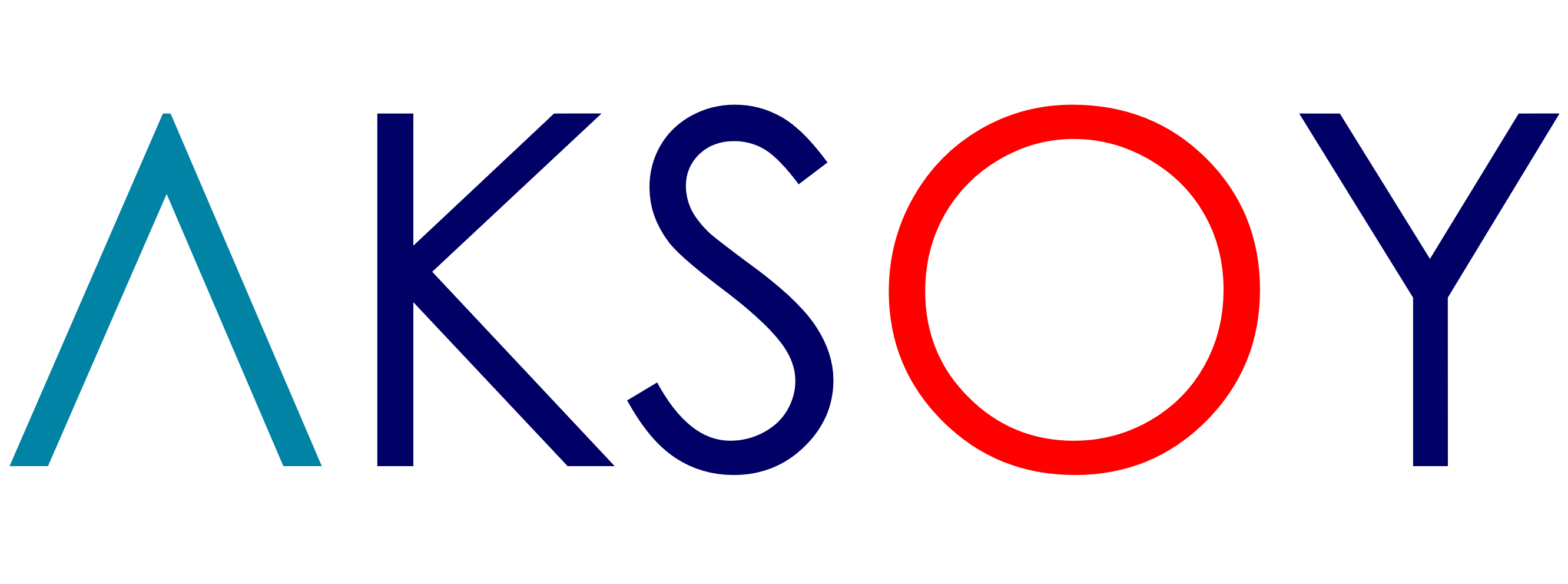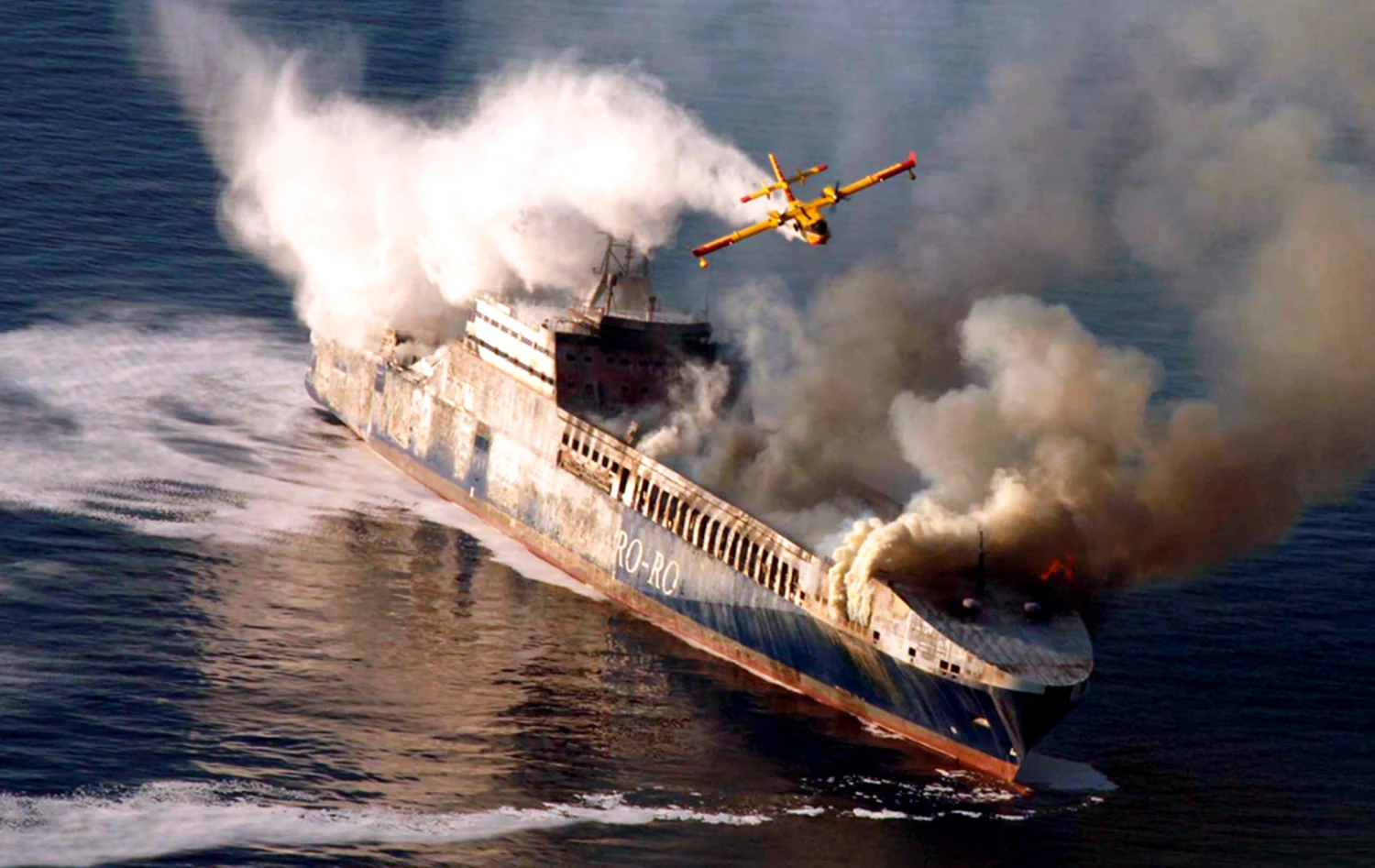When talking about Ro-Ro (roll on roll off) transportation, the first thing that comes to mind is the transport of cargo-laden trucks by ship from one port to another. However, the concept has a broader meaning. Looking at maritime history and recent events, Ro-Ro ships have frequently been in the spotlight due to fires, which have caused significant damage and have left their mark on legal history. For example, on February 18, 2022, a fire broke out on the Italian-flagged Ro-Ro vessel Euroferry Olympia, which was traveling from Greece’s Igoumenitsa port to Italy’s Brindisi port. The fire engulfed the trucks on the lower deck, and many passengers, including several Turkish nationals, experienced severe distress. Just two days earlier, on February 16, 2022, another incident occurred: the Panama-flagged Ro-Ro vessel Felicity Ace, carrying luxury cars from Germany to the United States, caught fire in the middle of the Atlantic and later sank after drifting. Another notable disaster occurred in 2008 with the UND Adriyatik incident. The Ro-Ro cargo vessel UND Adriyatik, carrying 202 vehicles, departed from Pendik (Istanbul) for Italy’s Trieste port on February 3, 2008. However, on February 6, at around 05:30, approximately three hours before reaching Trieste, a fire broke out in the enclosed Ro-Ro area, completely destroying the vessel. The incident resulted in millions of dollars in damages and numerous lawsuits.
Following the Erika oil tanker disaster off the French coast in 1999, which led to an environmental catastrophe, the European Union established the European Maritime Safety Agency (EMSA) to investigate maritime accidents and provide statistical data. According to EMSA’s 2021 maritime accident statistics, fire incidents rank lower than rudder failure, grounding, and collision across all ship types. However, EMSA’s 2011–2018 study specifically on Ro-Ro vessels (both passenger and cargo) highlights a significant fact: during this period, 3,236 incidents involving Ro-Ro vessels were reported, and in an analysis of 159 ships, fires were found to be the leading cause of incidents at 20%, followed by collisions at 15%.
In most Ro-Ro fires, the fire originates from the cargo loaded in trucks, with smoke first emerging from the lower deck filled with vehicles. The fire then rapidly spreads across the lower deck, impacting even passengers on the upper decks due to smoke and intense heat. While such incidents can completely destroy a ship, they can be prevented if firefighting measures are adequately implemented. In this regard, the operational status of the ship’s fire pumps and the competence of the crew are of utmost importance.
Ro-Ro transportation involves two primary contracts. The first is the road transport contract between the exporter (seller) and the road carrier, where the road carrier undertakes the transport of goods, primarily by road but partially via sea. The second contract is the freight contract between the road carrier and the Ro-Ro ship operator (sea carrier), which governs the transportation of trucks by ship.
From a Turkish legal perspective, the Turkish Commercial Code regulates both multimodal transport and the liability of carriers under freight contracts, with specific provisions addressing fire-related incidents. Additionally, Turkey is a party to the 1956 CMR (Convention on the Contract for the International Carriage of Goods by Road) and the 1924 Hague Rules. In this regard, Article 2 of the CMR is particularly relevant for Ro-Ro transportation. This provision establishes that, in truck shipments conducted via Ro-Ro vessels, the transport contract between the road carrier and the exporter/seller falls under the scope of the CMR.
Under Turkish law, if an exporter’s cargo is damaged due to a fire on a Ro-Ro vessel, or if a road carrier suffers losses due to a burned truck, they may claim compensation from the Ro-Ro ship operator under Articles 1178 and subsequent provisions of the Turkish Commercial Code. Additionally, if the cargo loaded on the trucks is destroyed by fire, the affected party (such as the seller, buyer, or cargo insurer) may seek compensation from the road carrier under CMR provisions or directly from the Ro-Ro ship operator under the “actual carrier” provision (Article 1191 of the Turkish Commercial Code). It should also be noted that the ship may be subject to precautionary attachment.
The CMR does not contain specific provisions regarding fire. However, Article 1180 of the Turkish Commercial Code explicitly states that in cases where damage results from fire under a freight contract, the carrier (e.g., the Ro-Ro ship operator) can only be held liable for its own fault, not for the actions of the captain, crew, or other related parties. Consequently, legal disputes arising from fires on Ro-Ro vessels often revolve around the ship’s seaworthiness, SOLAS (Safety of Life at Sea) inspections, crew competence, fire suppression equipment maintenance, and the actions of the person or company responsible for the ship’s Safety Management System (ISM Manager). Compliance with these safety standards is critical in resolving legal disputes concerning fire-related incidents.



Comments are closed